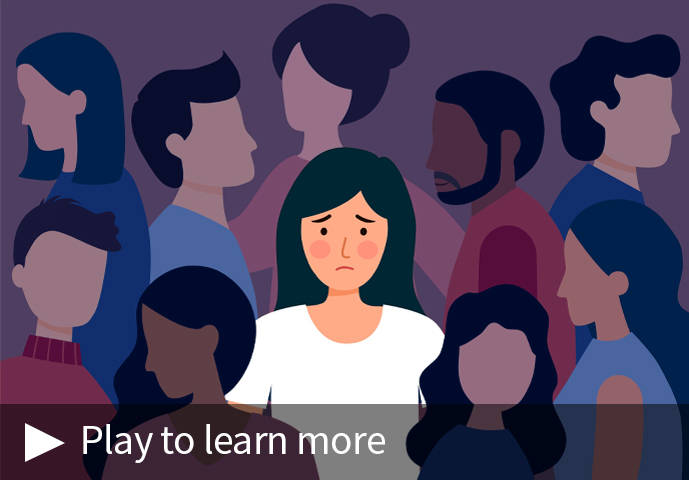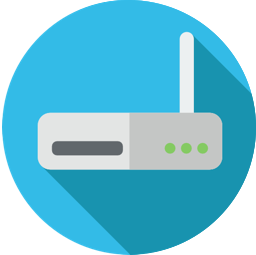
- Learn strategies to help school-age children, tweens & teens, and adults combat loneliness and build a caring community
- Participate in live, moderated chat stream to share your ideas & ask related questions
- Earn a Certificate of Completion and CE credit (for eligible professions)
1.5 hours of CE credit available for select professionals. For any special accommodations or assistance with resources email us.
Combating Loneliness and Misbehavior
00
Days
00
Hours
00
Minutes
00
Seconds
Brand new course! Streaming live on Oct 19, 2023 | 9:00 - 10:30 AM Pacific Time
Detailed Description
Who should attend
Loneliness is a national epidemic that has been evolving in depth and complexity for many years; it was exacerbated by the COVID-19 pandemic but is not caused by it. Since the early 2000s, people are collectively spending more time relating to each other through their electronic devices than in person, however there’s more to this story than digital disconnect. And, the effects of loneliness are far more pervasive and pernicious than people feeling isolated and alone. A study released in 2018 by Cigna, a global insurer and health company, describes loneliness as not only making us sad but making us sick, as well. Our physical health is at stake, in addition to our mental health. Our collective loneliness is also leading to the development of a type of national narcissism. The lonelier we feel, the more disconnected we are from others, the less kind we become. Behavioral and emotional dysregulation, resulting in misbehavior by some individuals, are on the rise not only in our schools but also within our communities.
How can we help?
In this livestream we’ll explore a range of ways we can cultivate meaningful relationships with others to foster our well-being, as well as kindness, empathy, and generosity of spirit toward others. Whether they are momentary, short-term, or long-term, our relationships help weave the fabric of a caring community. Now more than ever, building social awareness and developing social communication strategies to combat this growing crisis of loneliness is critical for school-age children, tweens and teens, and all the way through the adult years.
A healthy society depends on communities that not only look out for their members but also work to ensure the well-being of others. We’ll review recommendations from researchers, most of which point directly toward what we teach through the Social Thinking® Methodology: being present and available to relate to those we know and don’t know, practicing kindness, engaging in social problem solving as needed, developing strategies to manage social anxiety, in addition to enjoying our solitude.
We’ll welcome participants to share in the chat stream what they’re doing to encourage children, teens, and adults to relate face to face across a myriad of contexts.
Who Should Attend
The Social Thinking Methodology is used by a wide variety of professionals, including speech-language pathologists, special and general education teachers, social workers, counselors, clinical and school psychologists, occupational therapists, behavior specialists, and school administrators, to name a few. It’s also used by family members and caregivers across settings.
Learning Objectives and Agenda
Objectives
Participants will be able to:
- Define the potential negative impacts of loneliness on one’s life.
- Describe what is meant by the term national narcissism and how this leads to the increase of misbehavior in our schools and community.
- Explain at least two strategies to help school-age children, tweens & teens, and adults combat loneliness and build a caring community.
Agenda
9:00–9:30 AM Exploring concepts related to loneliness and misbehavior
9:30–10:00 AM Defining a “caring community.” Defining strategies which assist the development of social competencies for all students
10:00–10:15 AM Exploring ways to use one’s metacognition to manage social anxiety and reflect upon one’s progress
10:15–10:30 AM Q&A with Michelle Garcia Winner and Dr. Pamela Crooke, course moderator
Continuing Education Credit
1.5 hours toward CE credit, if applicable
Click here to see if you can receive CE credit by Profession and by State
We are proud to provide access to continuing education credit for:
- Speech-Language Pathologists (livestream and recorded)
- Educators (livestream and recorded)
- ...and others!
Technical requirements to participate in online training
Streaming compatible browser

The best browser for streaming is Google Chrome. If you are unable to use Chrome, please make sure the version of your browser is the latest and greatest.
Download ChromeHigh-speed internet connection

Make sure you are accessing the online course on a device that is connected to high speed internet—that means your download speed is at least 25Mbps.
Run Internet Speed TestOpen firewall ports

If you are accessing the online course from your school or organization, ask your network administrator if there are any firewall ports that need to be opened.
Learn More













